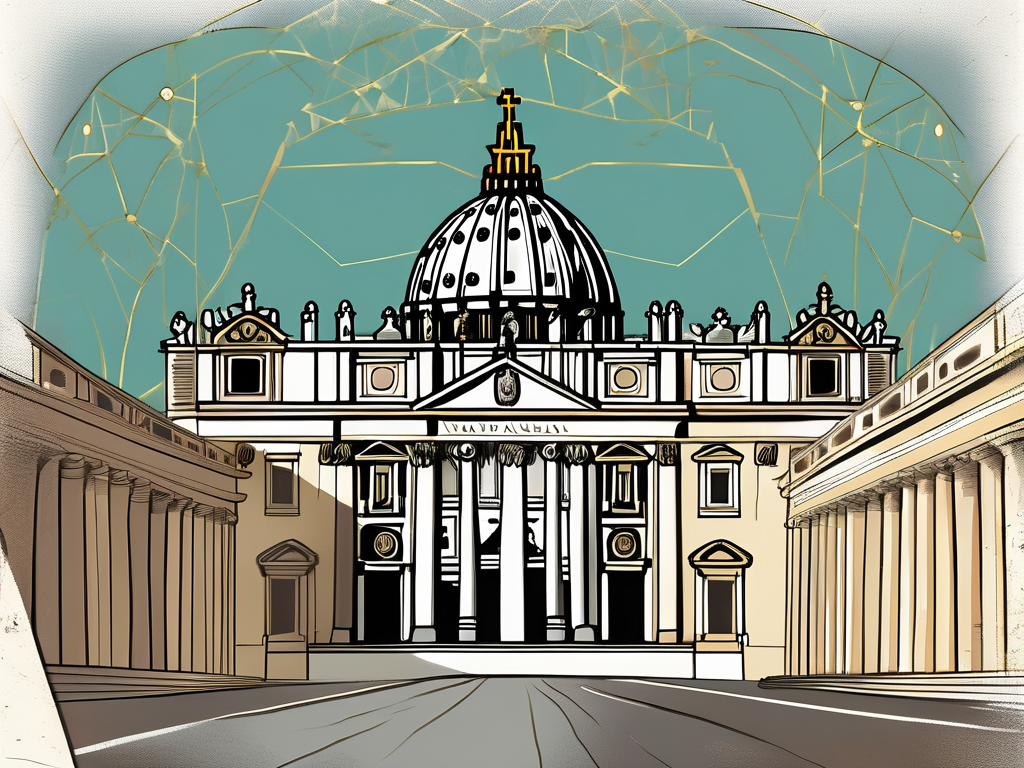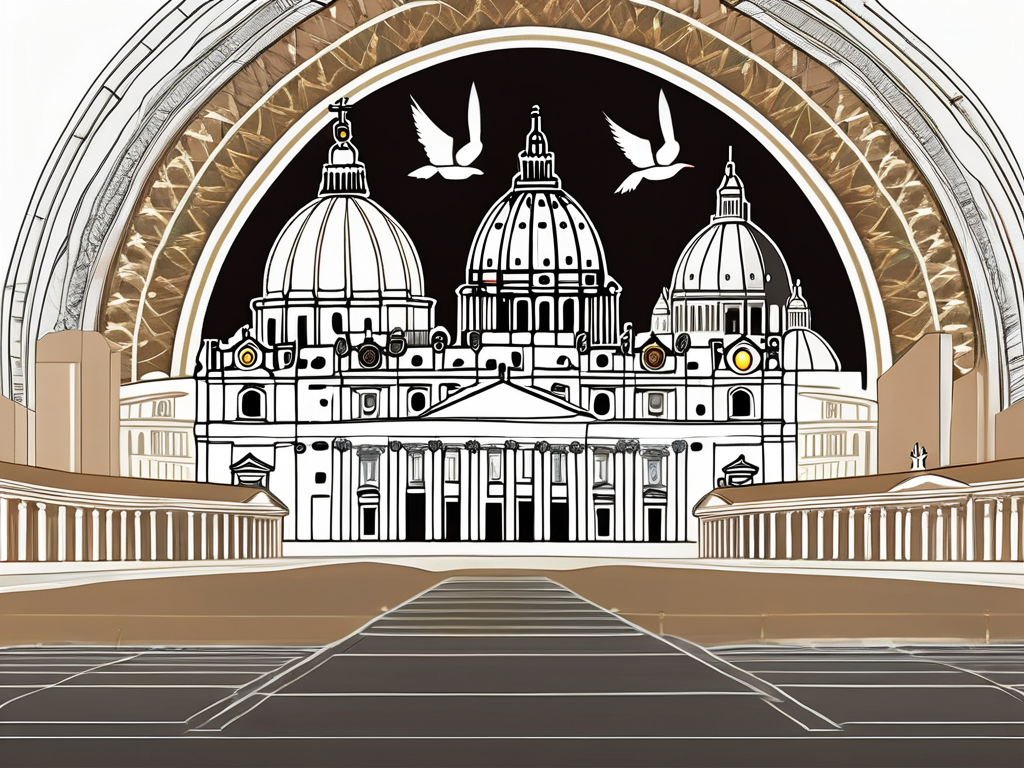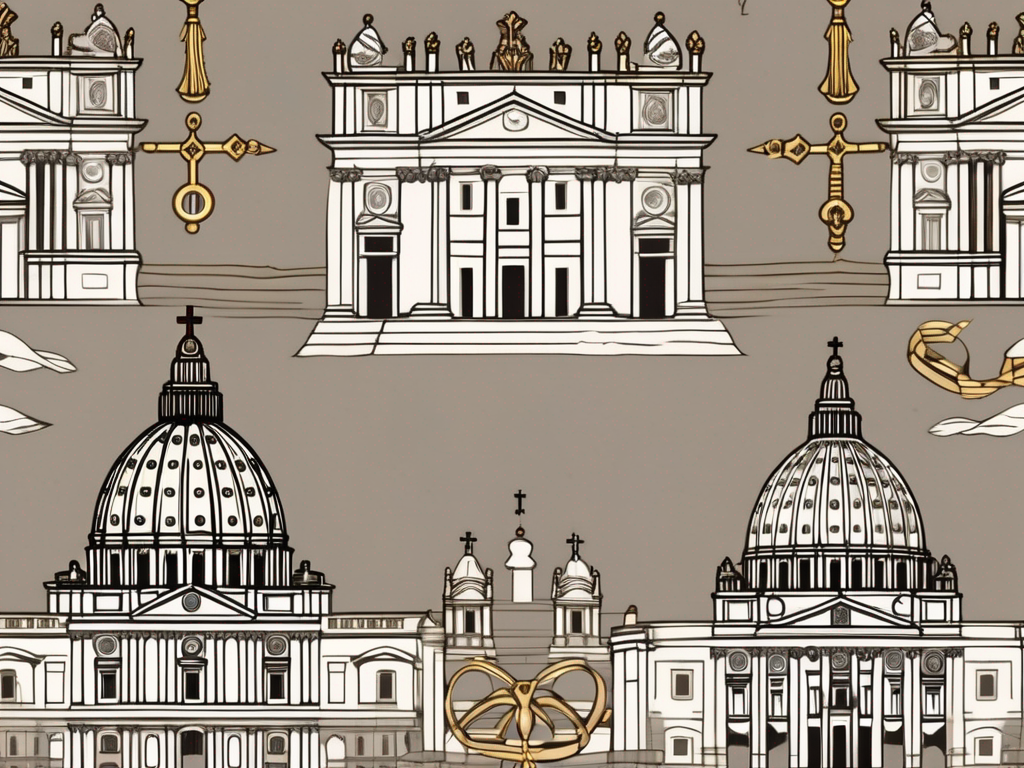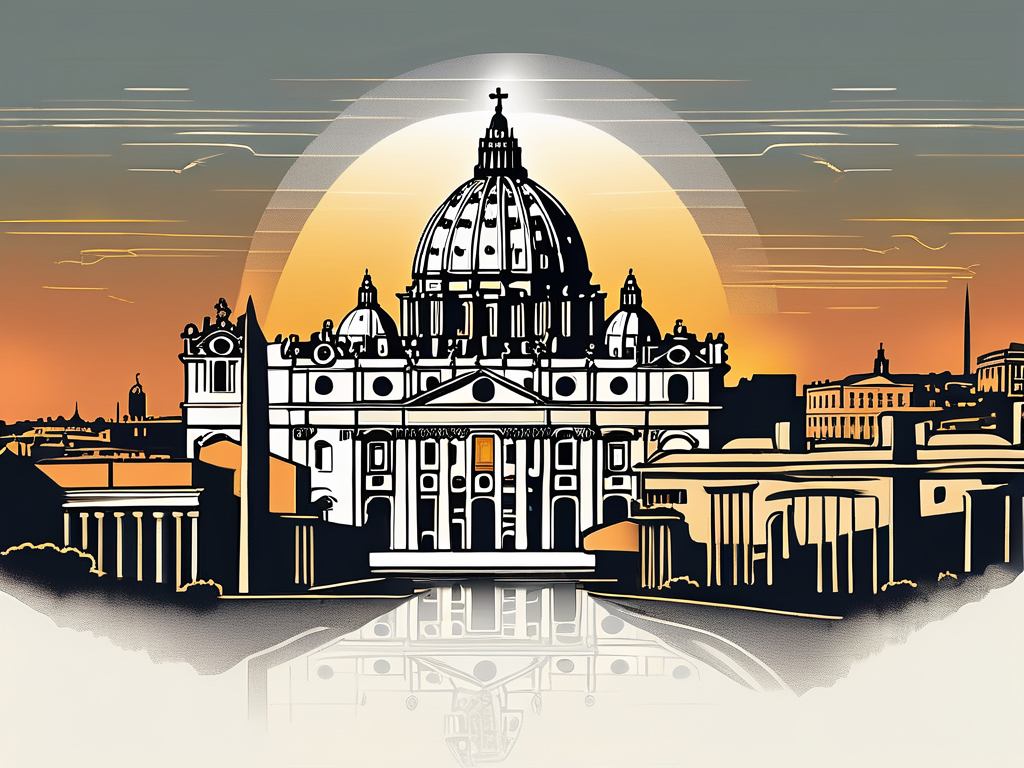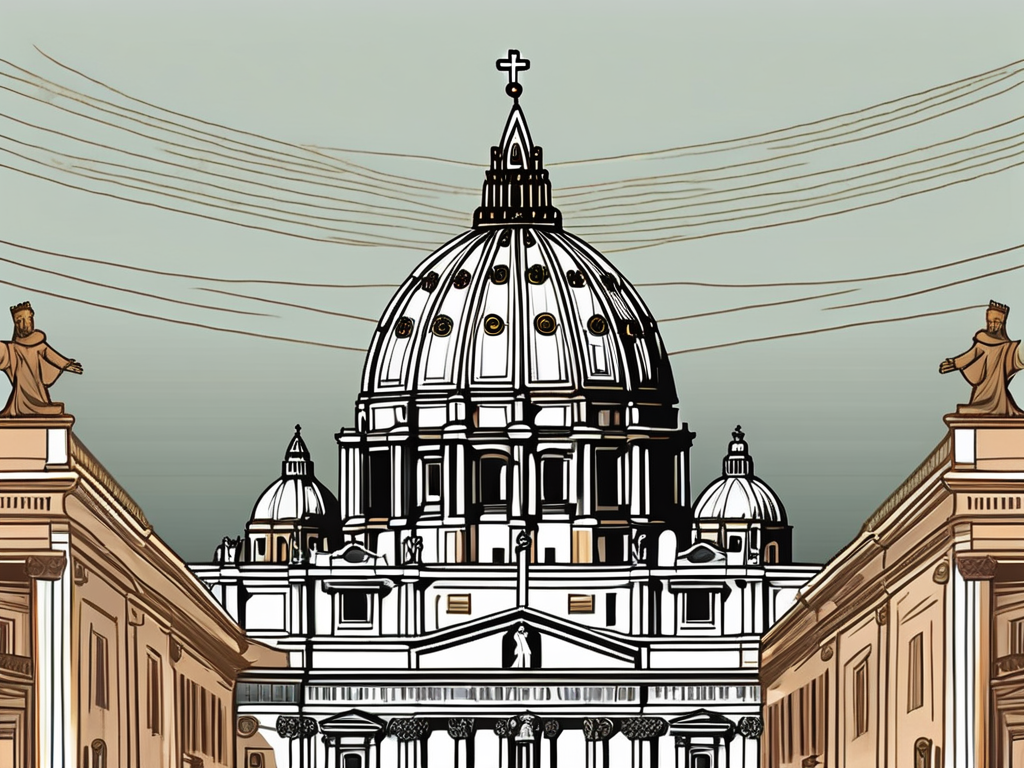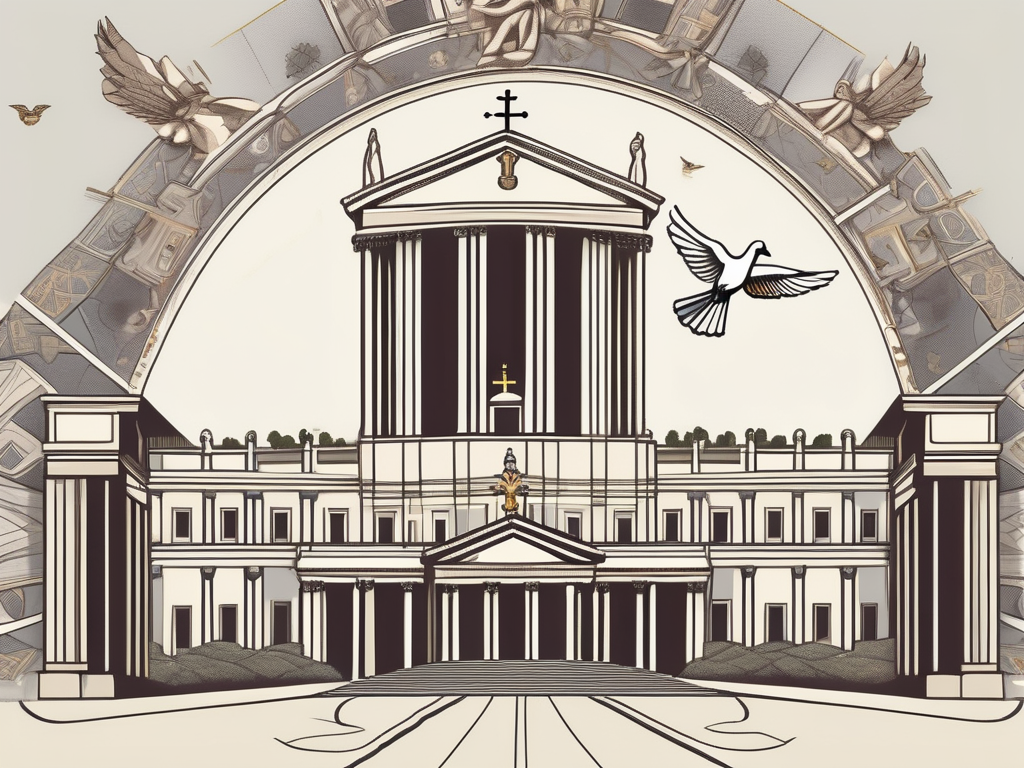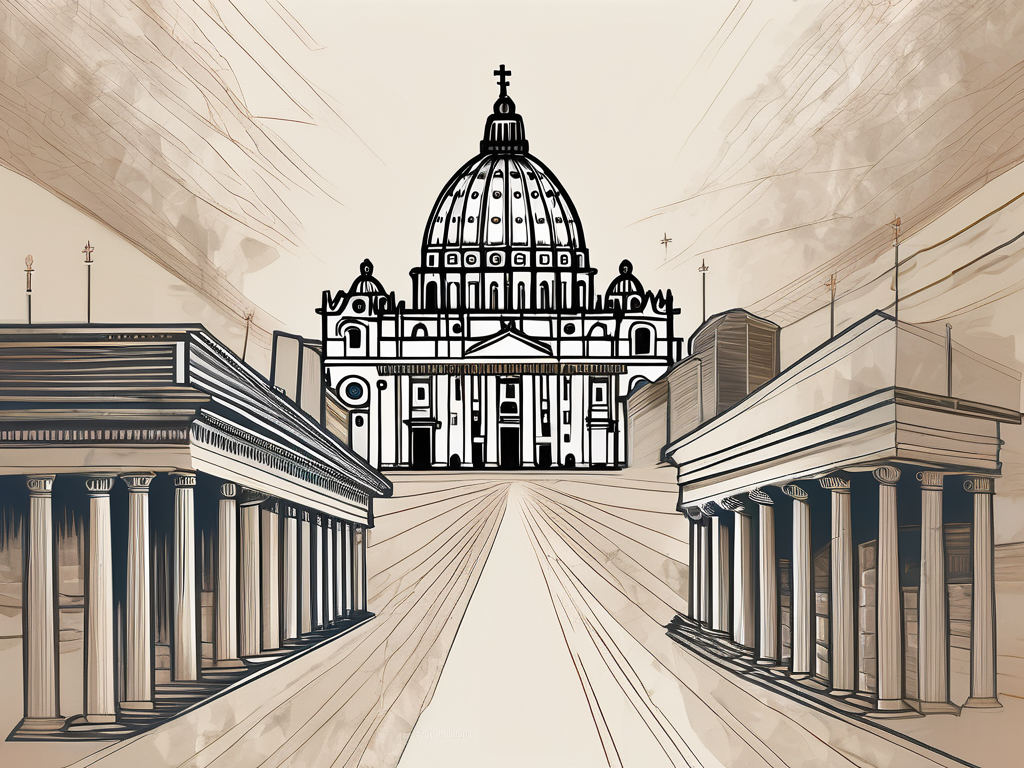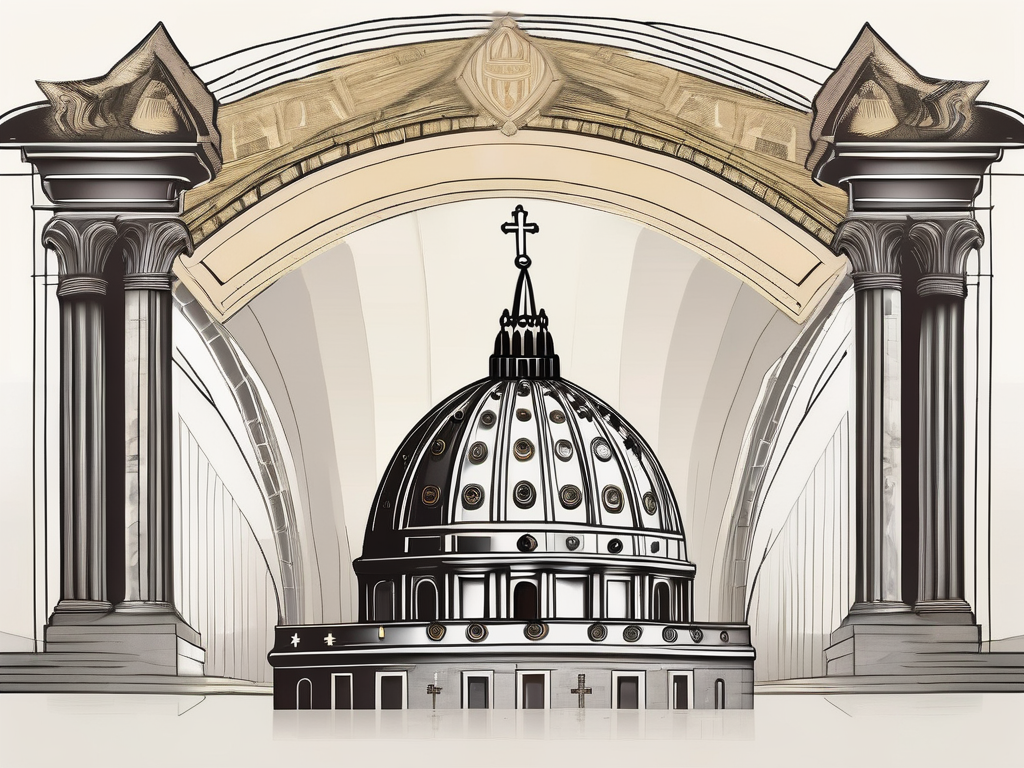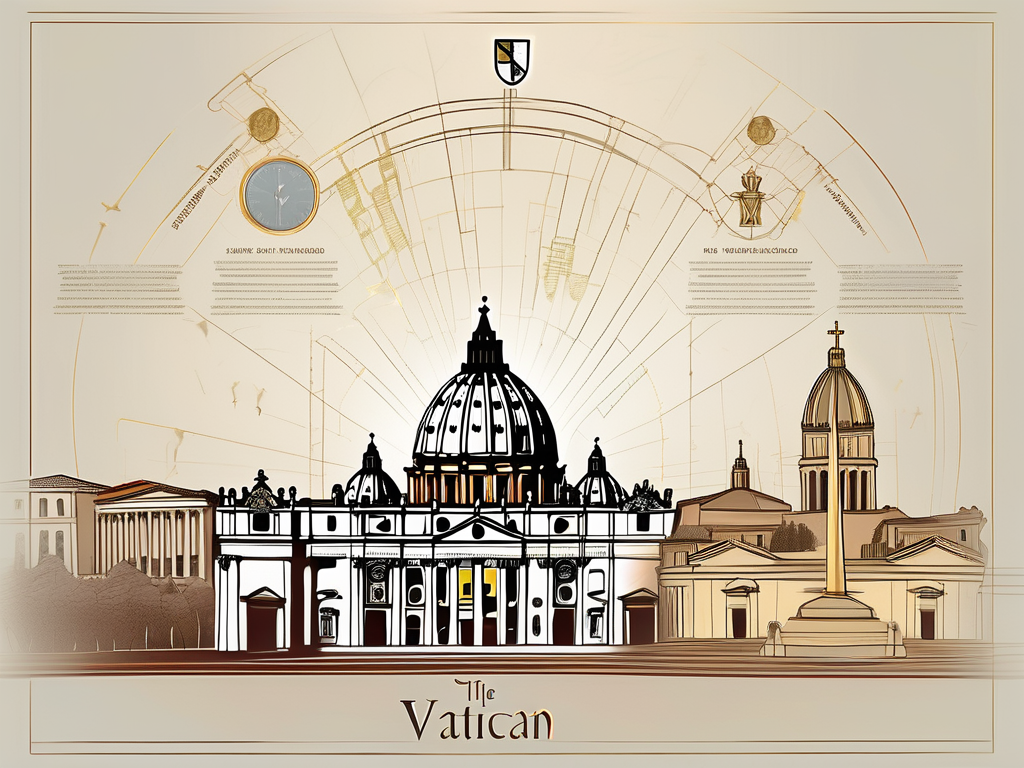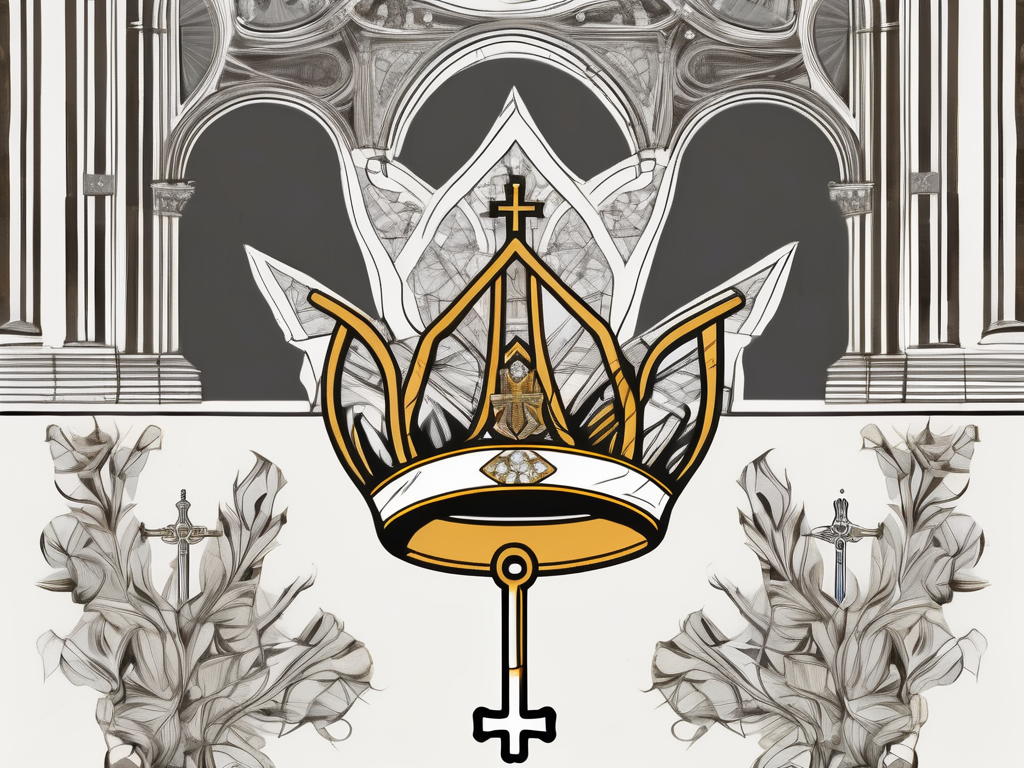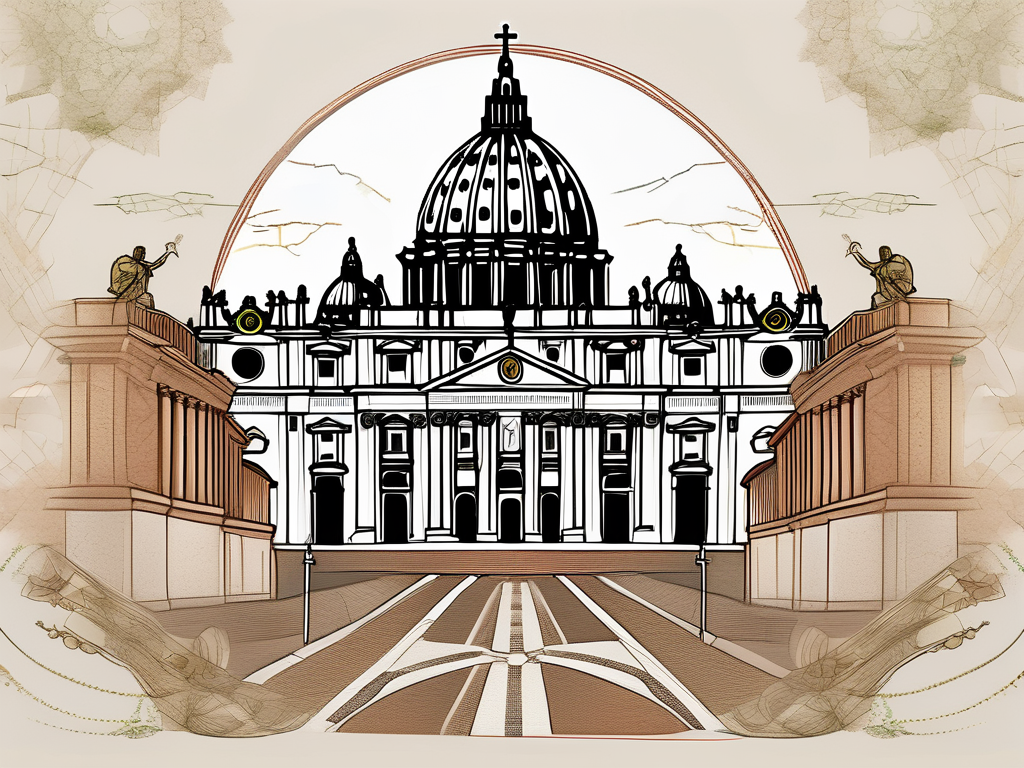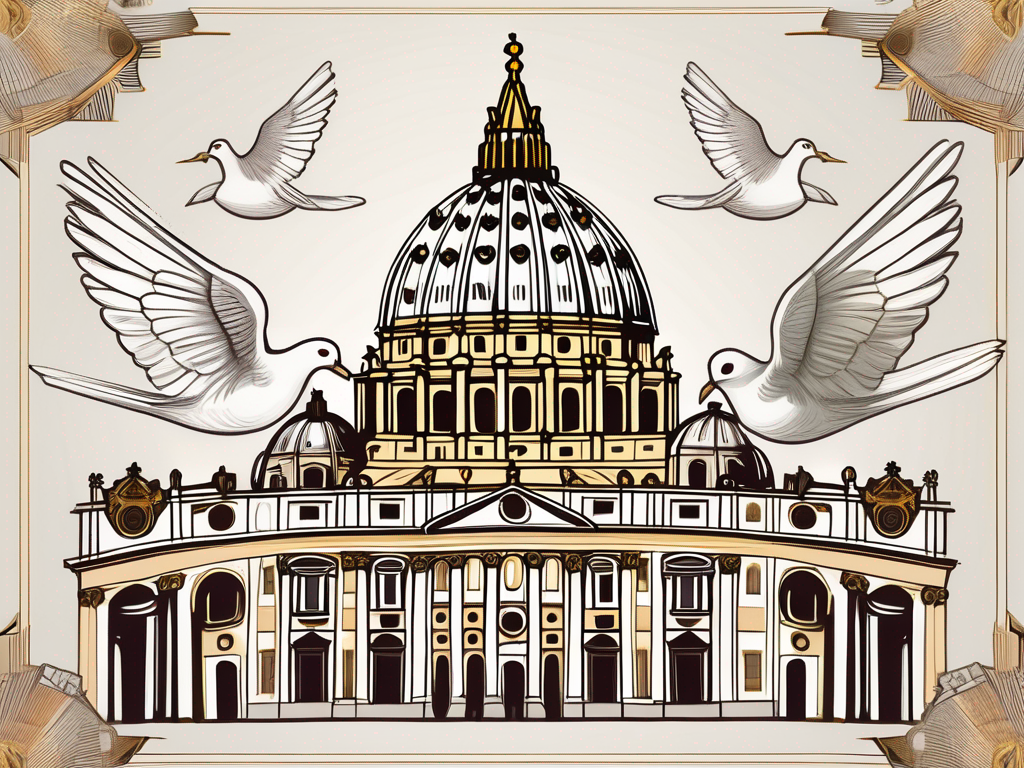Pope Martin I, also known as Martin the Confessor, was a prominent figure in the history of the Catholic Church. His life and legacy continue to inspire believers around the world. From his humble beginnings to his influential teachings, Pope Martin I left an indelible mark on the Church. Let’s delve into the fascinating story of this remarkable Pope.
Early Life and Education of Pope Martin I
Before assuming the papacy, Martin I led an ordinary life shaped by his birth and family background. Born to humble origins, he grew up in a devout Christian family committed to their faith.
From a young age, Martin I received a comprehensive religious education. He diligently studied the scriptures and developed a deep understanding of Christian doctrine. His theological prowess would later become a defining characteristic of his papacy.
As Martin I delved deeper into his studies, he became fascinated by the lives of the early Christian saints. Their unwavering dedication to their beliefs inspired him and fueled his desire to serve the Church. He spent countless hours poring over ancient texts, immersing himself in the rich history of Christianity.
During his formative years, Martin I also had the opportunity to learn from renowned theologians and scholars. He attended prestigious theological schools, where he engaged in intellectual debates and honed his critical thinking skills. These experiences not only broadened his knowledge but also shaped his ability to articulate complex theological concepts with clarity and precision.
It was evident to those around him that Martin I possessed a unique gift for leadership. His calm demeanor, coupled with his unwavering faith, made him a natural choice for positions of authority within the Church. He quickly rose through the ranks, earning the respect and admiration of his peers.
Despite his growing prominence, Martin I remained humble and grounded. He never lost sight of his humble beginnings and the values instilled in him by his family. This humility endeared him to the people, who saw in him a shepherd who genuinely cared for their spiritual well-being.
As Martin I approached adulthood, he faced a pivotal moment in his life. The Church was grappling with internal conflicts and theological disputes, threatening to divide the faithful. Sensing the urgency of the situation, Martin I dedicated himself to finding a resolution that would preserve the unity of the Church.
His tireless efforts to bridge the theological divide did not go unnoticed. Martin I’s reputation as a peacemaker and a wise theologian spread far and wide. His name became synonymous with unity and reconciliation, earning him the respect of both clergy and laity alike.
It was this reputation that ultimately led to his election as Pope. Martin I’s papacy would be marked by numerous challenges and trials, but his unwavering faith and deep theological knowledge would guide him through the storm. He would become a beacon of hope and a source of inspiration for the faithful, proving that even an ordinary life can be transformed into something extraordinary through dedication, humility, and a steadfast commitment to one’s beliefs.
Ascension to Papacy
After years of dedicating himself to the Church, Martin I’s qualities did not go unnoticed. In a moment that would change his life forever, he was elected as Pope and received the papal investiture. However, his time as Pope was not without challenges and controversies.
Election and Papal Investiture
The election of Martin I as Pope was met with great enthusiasm and support from the Catholic community. His intellectual acumen and unwavering commitment to the faith made him an ideal candidate for the position. With the papal investiture, he officially became the Bishop of Rome and the head of the Catholic Church.
As Pope, Martin I was determined to address the prevailing theological issues of his time and to guide the Church steadfastly.
Challenges and Controversies
Throughout his papacy, Pope Martin I faced numerous challenges and controversies that tested his resolve. One of the most significant challenges came in the form of conflicts with the Byzantine Empire.
The Byzantine Emperor, Constans II, sought to exert control over the Church’s doctrines. However, Martin I staunchly defended the Church’s independence and authority. This led to a bitter clash between the Pope and the Emperor, as they each fought for their respective influence.
Despite the controversies surrounding his papacy, Martin I remained unwavering in his commitment to the Church’s teachings and traditions.
During his time as Pope, Martin I also faced internal challenges within the Catholic Church. Theological disputes and divisions among clergy members threatened to weaken the unity of the Church. However, Martin I was known for his diplomatic skills and ability to bring conflicting parties together for dialogue and reconciliation.
Furthermore, Martin I was deeply concerned about the spread of heresies and false teachings. He tirelessly worked to combat these challenges by convening synods and councils to clarify and reaffirm the Church’s doctrines. His efforts not only strengthened the Church’s theological foundation but also served as a means of educating and guiding the faithful.
In addition to his theological endeavors, Pope Martin I was also deeply committed to the welfare of the poor and marginalized. He established charitable organizations and initiatives to provide assistance to those in need. His compassion and dedication to social justice became a hallmark of his papacy, inspiring many to follow in his footsteps.
Despite the immense responsibilities and pressures of his position, Martin I remained humble and approachable. He was known for his kindness and willingness to listen to the concerns of both clergy and laity. His pastoral approach endeared him to many, and his papacy was marked by a sense of inclusivity and compassion.
Throughout his tenure as Pope, Martin I tirelessly worked to uphold the integrity and unity of the Catholic Church. His unwavering commitment to the faith, coupled with his intellectual prowess and compassionate nature, left a lasting impact on the Church and its followers.
Key Teachings and Doctrines
Pope Martin I’s papacy was marked by his significant contributions to the Catholic Church’s teachings and doctrines. His profound theological insights continue to shape the faith of believers worldwide.
One of the most notable theological contributions of Pope Martin I was his steadfast defense of the orthodox understanding of Christ’s nature. He adamantly opposed the heretical views that threatened to undermine the Church’s dogmas. His theological clarity and firmness played a crucial role in preserving the integrity of Christian doctrine.
Pope Martin I’s dedication to upholding the orthodox understanding of Christ’s nature stemmed from his deep understanding of the early Church Fathers’ writings. He delved into the works of theologians such as Athanasius and Cyril of Alexandria, studying their insights on the hypostatic union and the divinity of Christ. Drawing from this rich theological tradition, Pope Martin I articulated the Church’s teachings with precision and conviction.
Furthermore, Pope Martin I’s theological contributions extended beyond the Christological controversies. He also addressed other important doctrinal issues, such as the nature of the Trinity and the role of the sacraments in the life of believers. His writings on these topics provided a solid foundation for the faithful to deepen their understanding of the mysteries of the faith.
Encyclicals and Apostolic Letters
During his papacy, Pope Martin I issued numerous encyclicals and apostolic letters. These writings served to instruct and guide the faithful, providing them with spiritual insight and practical advice. His words of wisdom and encouragement continue to inspire believers to this day.
In his encyclicals, Pope Martin I addressed a wide range of topics, including the importance of prayer, the pursuit of holiness, and the need for unity among believers. He emphasized the transformative power of prayer in the life of a Christian, encouraging the faithful to cultivate a deep and personal relationship with God through constant communication.
Pope Martin I also stressed the significance of holiness in the Christian journey. He reminded believers that they are called to be set apart, to live lives that reflect the love and grace of Christ. Through his writings, he provided practical guidance on how to grow in holiness, emphasizing the importance of virtue, self-discipline, and a sincere commitment to following Christ’s teachings.
Another recurring theme in Pope Martin I’s encyclicals was the need for unity among believers. He recognized that division and discord among Christians weakened the Church’s witness to the world. Therefore, he urged the faithful to strive for unity, to embrace dialogue and reconciliation, and to work together for the advancement of the Kingdom of God.
Pope Martin I’s encyclicals and apostolic letters continue to be treasured resources for the faithful, offering them guidance and inspiration in their spiritual journey. His teachings and doctrines, rooted in the rich tradition of the Church, serve as a beacon of light, illuminating the path of faith for generations to come.
Persecution and Exile
Unfortunately, Martin I’s unwavering dedication to the Church led to persecution and exile. His refusal to compromise his beliefs was met with severe consequences.
Conflict with Byzantine Empire
The conflict between Pope Martin I and the Byzantine Empire eventually escalated to the point where the Emperor ordered his arrest. The Pope’s refusal to bend to the Emperor’s will resulted in his subsequent exile.
During his exile, Martin I endured many hardships and injustices. However, he remained steadfast in his faith, finding solace in the knowledge that he was suffering for the sake of Christ and His Church.
Exile and Martyrdom
Martin I’s exile lasted for several years, during which he faced immense hardships and trials. Despite the challenges, he continued to provide spiritual guidance to believers and remained an anchor of hope for the persecuted Church.
Tragically, Pope Martin I’s exile ended in martyrdom. His steadfast refusal to renounce his faith resulted in his death, making him a true martyr in defense of the Church’s integrity.
Legacy and Canonization
Pope Martin I’s legacy extends far beyond his lifetime. His profound influence on the Catholic Church and unwavering commitment to the teachings of Christ continue to inspire believers today.
Influence on the Catholic Church
Martin I’s theological contributions and unwavering defense of orthodox doctrine have played a significant role in shaping the Catholic Church. His teachings continue to guide the faithful and provide a solid foundation for their faith.
Canonization and Feast Day
In recognition of his martyrdom and lifelong dedication to the Church, Pope Martin I was canonized as a saint. The Church designated a special feast day, on which believers commemorate his life, legacy, and unwavering commitment to Christ.
Conclusion
Pope Martin I’s life and legacy serve as a shining example of fidelity and dedication to the Church. From his humble beginnings to his martyrdom, he remained steadfast in his commitment to the faith, defending the Church’s teachings, and guiding believers through challenging times. His influence continues to shape the Catholic Church, reminding us of the importance of unwavering faith and commitment to the truth.
